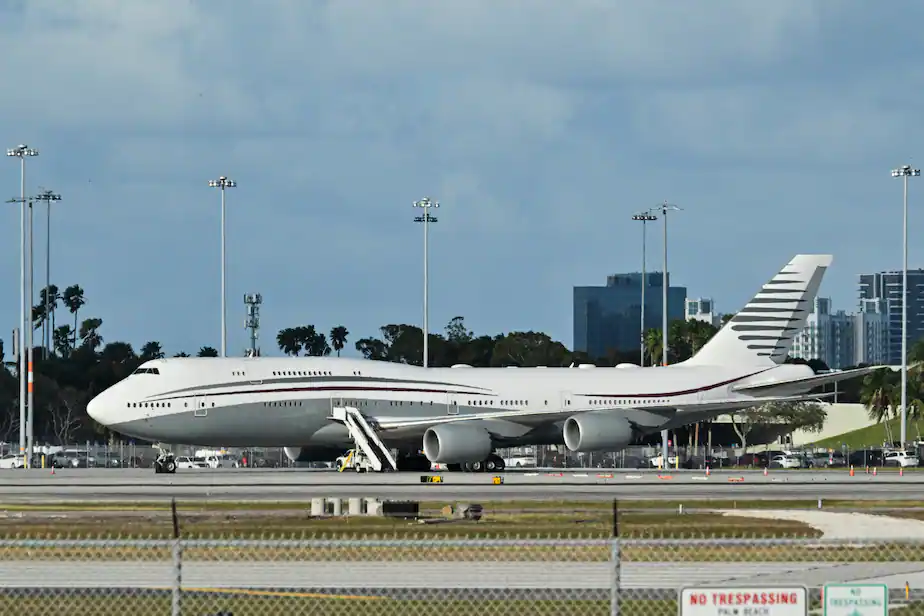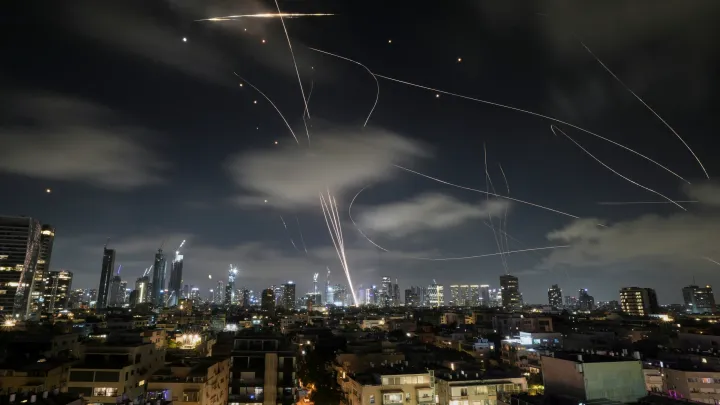Trump Receives Boeing 747 from Qatar, but Security and Political Costs Raise Alarms
Donald Trump receives a luxury Boeing 747-8 jet from Qatar, but the massive modification costs and political risks spark major controversy.

Qatar’s “Gift” Jet Could Be a Burden for the U.S.
Former President Donald Trump is back in the spotlight after reportedly accepting a lavish gift from the Qatari royal family: a Boeing 747-8 jumbo jet worth approximately $400 million. The aircraft, previously used by the royal family as a private jet, was recently relocated to San Antonio, Texas—raising speculation that it’s being prepared as an emergency replacement for Air Force One.
Despite the “free” label, serious concerns have emerged. Defense and security experts argue that the jet does not meet the highly classified standards required for Air Force One. It would need advanced encrypted communications, cybersecurity defenses, military-grade radar, and shielding from nuclear blasts. Analysts estimate the upgrade could cost billions of dollars and take years, possibly not ready until the 2030s.
Ethical and Constitutional Dilemma
Beyond the technical hurdles lies a deeper ethical issue. Bipartisan voices in Congress warn that accepting such a gift from a foreign government could violate the Emoluments Clause of the U.S. Constitution, which prohibits federal officials from receiving gifts without Congressional approval. Trump, however, defended the move as “practical” and said refusing the plane would be “foolish.”
Critics argue this isn’t just about practicality—it’s about sovereignty, public office ethics, and potential conflicts of interest.
Taxpayers Could Foot the Bill
Despite the aircraft being labeled as a gift, American taxpayers are expected to bear the enormous costs for modifications, testing, and maintenance. The Pentagon previously estimated that the lifetime operational costs of Air Force One could reach $7.7 billion.
Even worse, this move may disrupt the ongoing VC-25B replacement program, the official successor to Air Force One currently being developed by Boeing. That program has already faced delays and cost overruns. Diverting resources to retrofit this Qatar jet could cause further setbacks.





Comments ()